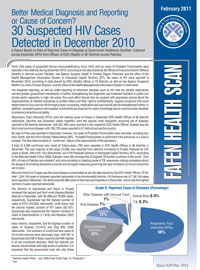Police at one-sixth of police stations monitored across the country have to seek logistical support from public for the conduct of investigations of the registered cases, says Free and Fair Election Network (FAFEN) in its first Police Monitor, a report based on the monitoring of 105 police stations in 75 districts across Pakistan.
FAFEN Governance Monitors visited 105 police stations between October and December 2010 — 51 police stations in 31 districts of Punjab, 29 in 22 districts of Khyber Pakhtunkhwa (KP), 17 in 14 districts of Sindh, seven in as many districts of Balochistan and one police station in Islamabad Capital Territory (ICT). The monitoring is part of FAFEN’s ongoing work that seeks to enhance public engagement and oversight of elected and public institutions.
While police stations across the country were found to be resource strapped, people interviewed at 16% of all monitored police stations complained that police were demanding logistical for probing cases that were already registered — 20% in monitored police stations in Punjab, 17% in KP and 12% in Sindh.
Many such demands by police may be due to lack of operational resources that should be available for efficient working of the department. For instance, two percent of 51 police stations monitored in Punjab and 18 % of 17 police stations in Sindh had vehicles but no funds available to ply them. Some of the police demands to people are as petty as provision of stationary as was documented by FAFEN Governance Monitors at 13 % of all monitored police stations where moharrar sought papers, pencils, etc. before a case could be registered. Officials at 28% of all monitored police stations said they did not have necessary stationary to conduct their business.
Police corruption was reported at 11% of all monitored police station, where people complained to FAFEN Governance Monitors that police officials were demanding money or other favors to register the First Information Reports (FIR). Relatives of inmates at 24% of the police stations in Sindh and 20% in Punjab told FAFEN Monitors that the police have asked for bribe for the release of individuals in custody. Such practices may be prevalent as a result of weak citizens and official oversight over the police department. Only 116 visits were recorded between October and December, 2010 by government officials and elected representatives to the monitored police stations.
Police behavior with public was also observed to have been unsupportive at 14% monitored police stations. For instance, police officials at 18% of monitored police stations in Sindh, 7% in KP, 14% in Balochistan and 12% in Punjab were not facilitating or guiding the citizens in the registration of FIRs. Similarly, police officials were observed to have been turning away citizens from the gate at 14% of all monitored police stations. Although Punjab and Sindh police have implemented a policy and mechanism to ensure citizens’ access to information at police stations, the Station House Officers (SHOs), the highest ranking officers, of 35% monitored police stations in Punjab and 29% in Sindh was oblivious of such policy and have not made any arrangements to facilitate citizens’ access to stations’ record.
While the country is facing a security challenge, 10% of sanctioned posts at the 97 police stations, which shared this information, are vacant. The highest number of posts are lying vacant in Punjab with 18% of sanctioned posts not filled. As many as 15% of sanctioned posts are vacant in Sindh and two percent in KP. However, police stations monitored in Balochistan and Islamabad were overstaffed where the occupancy rate against the sanctioned posts was 118% and 124%, respectively. The overstaffing may be due to deputations.
None of the 35 sanctioned posts for female staff at 12 police stations, which provided this information, were vacant. Ninety-three police stations did not have the information or were not willing to share it with FAFEN Monitors.
The working conditions of police in terms of infrastructure and services available to them were generally substandard. The building and physical infrastructure of many monitored police stations was not satisfactory. More than one-fifth (21%) of monitored police stations was not housed in proper buildings, while 37% of monitored police stations were working out of dilapidated buildings.
Hygiene and maintenance was observed to be unsatisfactory in more than 35% of the monitored police stations nationwide. Latrines were not available for staff and arrested accused in 29% of the monitored police stations in Balochistan, 24% in Sindh and 8% in Punjab. Similarly, police stations lacked basic amenities such like clean drinking water arrangements that were not available at 27% of the monitored police stations nationwide.
About FAFEN:
FAFEN is a network of 35 civil society organizations working to foster democratic accountabilities in Pakistan. It is governed by Trust for Democratic Education and Accountability. For more information please visit www.fafen.org.


